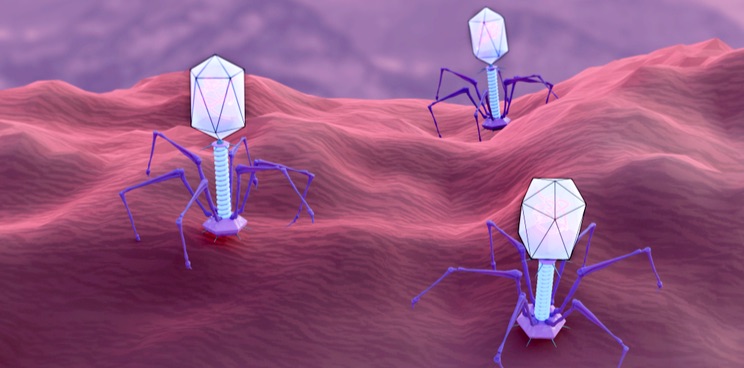Newsletter Signup - Under Article / In Page
"*" indicates required fields
Amidst recent listeria outbreaks in Europe, the European Court of Justice has issued a court order in favor of the company Micreos Food Safety allowing the use of its phage technology to keep listeria at bay in food.
Bacteriophages, or phages for short, are viruses that only kill specific bacterial strains and are harmless to humans. This makes them a promising alternative to antibiotics for the prevention of pathogens growing in food.
Based in Wageningen, the Netherlands, Micreos Food Safety is a pioneer in phage technology for food safety applications. Listex, a product against listeria developed by Micreos, was the first phage product approved as a food processing aid by the FDA, and is available in countries around the world such as Australia, New Zealand, Israel, and Canada.
However, Micreos has found regulatory challenges to selling the product in Europe. The reason is that there is currently no legal framework in the European Union for the use of phages to prevent food contamination.
“The fact that it wasn’t generally recognized as a processing aid in Europe by local authorities is because it’s new and they don’t know what it is,” said Dirk de Meester, Director of Business Development at Micreos Food Safety.
The issue was taken to the European Commission. After the European Food Safety Authority concluded that Listex was effective and safe, the Commission intended to regulate the product as a decontaminant in lack of a legal framework for processing aids. Micreos disagreed, based on the fact that the phage product is intended for use in food products that are not contaminated — the goal in fact is to prevent their contamination.
“In modern food processing plants, there are always low levels of listeria,” de Meester told me. “This is an unavoidable risk that food producers have when they are making their products, because listeria is everywhere and can pop up at any time despite all the rigorous hygiene measures that they undertake.”
The Commission did not make a decision, leaving the product in a regulatory limbo that, in practice, blocked the sales of Listex to new customers. The issue was taken to the European Court of Justice, which has determined that Listex can be used to prevent listeria from growing to dangerous levels in food, acknowledging the importance of phages in addressing the antibiotic resistance crisis.
“Listeriosis victims in Spain, Germany and most recently in the Netherlands demonstrate the urgency to prevent contamination of food with Listeria bacteria – the most pathogenic of all food contaminants,” read the court order. “Particularly the listeria outbreak in the Netherlands is a case in point: already in March 2019 legally acceptable numbers of listeria bacteria occurred in meat processing facilities. However, their outgrowth eventually led to the outbreak. The use of [Listex] at the early stage of listeria development could have prevented this outgrowth and thus may have prevented the outbreak.”
While this decision is a first step in the right direction, the current legal situation is still blocking the development and use of this technology in Europe. “The acceptance of phages is accelerating outside of Europe,” said de Meester. “But because of the unclarity and uncertainty that exists in Europe, I think suppliers of phages have been reluctant to enter the European market.”
According to de Meester, some members of the European Parliament are urging the Commission to develop a specific phage regulation for the EU. While it would take years for that to happen, he sees it as a necessary process to strengthen Europe’s stance in the fight against antibiotic resistance.






